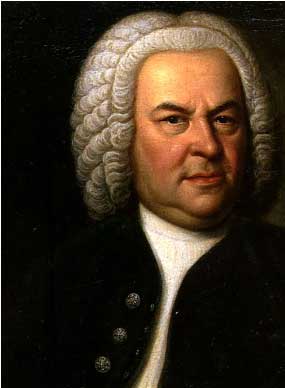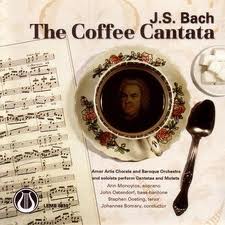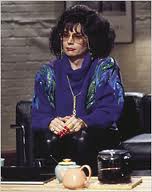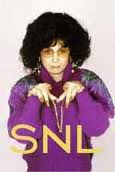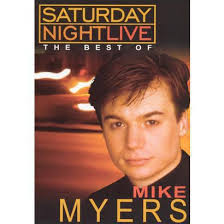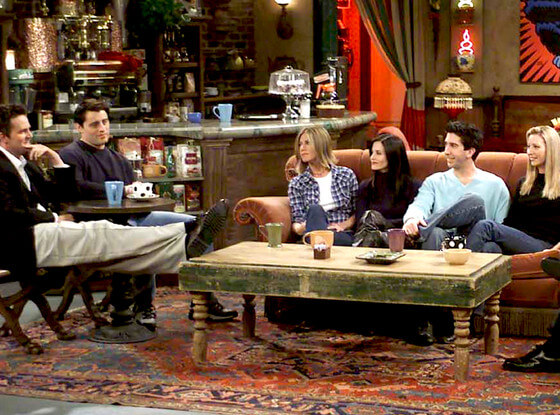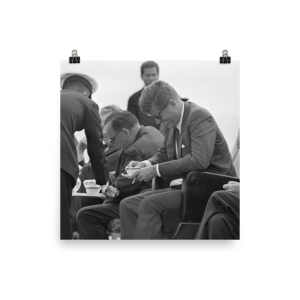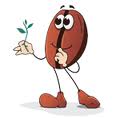Johann Sebastian Bach – German Classical Composer ( March 21, 1685 – July 28, 1750) who penned some of History’s most memorable compositions.
His enthusiastic love for coffee led him to write the “Coffee Cantata”
One exceptional line reads as follows:
“If I can’t drink my bowl of coffee three times daily, then in my torment, I will shrivel up like a piece of roast goat”.
Good-Music-Guide – Coffee Cantata
Johann Sebastian Bach Conservapedia
Mike Myers
Mike Myers performed a series of sketches on the ever popular American live television comedy show Saturday Night Live during the early 1990’s.
In it, he portrays Linda Richman, a New York Jewish lady hosting a T.V. show called “Coffee Talk.”
The hilarious spontaneous episodes showcased a number of celebrity guest cameos, with running gags that are now classic. “Talk amongst yourselves”
COFFEE TALK-SNL-Mike Myers-Madonna-Roseann Barr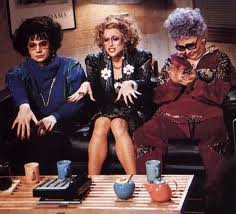
HONERE DE BALZAC
Honere de Balzac, May 20th, 1799 – August 18th, 1850, was a renowned French novelist, who is best known for his “La Comedie Humaine ” a series of vignettes and novels depicting the wide spectrum of French society, after the 1815 downfall of Napoleon Bonaparte. He is considered one of the founders of “Realism” in French literature.
An avid coffee drinker, he is known to have worked feverishly for weeks at a time, while under the influence of 50 cups of black java brew per day.
Health problems plagued him in later years, and it is speculated that the over-consumption of this strong beverage may have contributed to his demise.
Perhaps we can derive some insight into the state of mind of this prolific scribe as he details his caffeine addiction in his written ode to coffee.
“The Pleasures and Pains of Coffee”
by Honore de Balzac
translated from the French by Robert Onopa
Coffee is a great power in my life; I have observed its effects on an epic scale. Coffee roasts your insides. Many people claim coffee inspires them, but, as everybody knows, coffee only makes boring people even more boring. Think about it: although more grocery stores in Paris are staying open until midnight, few writers are actually becoming more spiritual.
But as Brillat-Savarin has correctly observed, coffee sets the blood in motion and stimulates the muscles; it accelerates the digestive processes, chases away sleep, and gives us the capacity to engage a little longer in the exercise of our intellects. It is on this last point, in particular, that I want to add my personal experience to Brillat-Savarin’s observations.
Coffee affects the diaphragm and the plexus of the stomach, from which it reaches the brain by barely perceptible radiations that escape complete analysis; that aside, we may surmise that our primary nervous flux conducts an electricity emitted by coffee when we drink it. Coffee’s power changes over time. [Italian composer Gioacchino] Rossini has personally experienced some of these effects as, of course, have I. “Coffee,” Rossini told me, “is an affair of fifteen or twenty days; just the right amount of time, fortunately, to write an opera.” This is true. But the length of time during which one can enjoy the benefits of coffee can be extended.
For a while – for a week or two at most – you can obtain the right amount of stimulation with one, then two cups of coffee brewed from beans that have been crushed with gradually increasing force and infused with hot water.
For another week, by decreasing the amount of water used, by pulverizing the coffee even more finely, and by infusing the grounds with cold water, you can continue to obtain the same cerebral power.
When you have produced the finest grind with the least water possible, you double the dose by drinking two cups at a time; particularly vigorous constitutions can tolerate three cups. In this manner one can continue working for several more days.
Finally, I have discovered a horrible, rather brutal method that I recommend only to men of excessive vigor, men with thick black hair and skin covered with liver spots, men with big square hands and legs shaped like bowling pins. It is a question of using finely pulverized, dense coffee, cold and anhydrous, consumed on an empty stomach. This coffee falls into your stomach, a sack whose velvety interior is lined with tapestries of suckers and papillae. The coffee finds nothing else in the sack, and so it attacks these delicate and voluptuous linings; it acts like a food and demands digestive juices; it wrings and twists the stomach for these juices, appealing as a pythoness appeals to her god; it brutalizes these beautiful stomach linings as a wagon master abuses ponies; the plexus becomes inflamed; sparks shoot all the way up to the brain. From that moment on, everything becomes agitated. Ideas quick-march into motion like battalions of a grand army to its legendary fighting ground, and the battle rages. Memories charge in, bright flags on high; the cavalry of metaphor deploys with a magnificent gallop; the artillery of logic rushes up with clattering wagons and cartridges; on imagination’s orders, sharpshooters sight and fire; forms and shapes and characters rear up; the paper is spread with ink – for the nightly labor begins and ends with torrents of this black water, as a battle opens and concludes with black powder.
I recommended this way of drinking coffee to a friend of mine, who absolutely wanted to finish a job promised for the next day: he thoughthe’d been poisoned and took to his bed, which he guarded like a married man. He was tall, blond, slender and had thinning hair; he apparently had a stomach of papier-mache. There has been, on my part, a failure of observation.
When you have reached the point of consuming this kind of coffee, then become exhausted and decide that you really must have more, even though you make it of the finest ingredients and take it perfectly fresh, you will fall into horrible sweats, suffer feebleness of the nerves, and undergo episodes of severe drowsiness. I don’t know what would happen if you kept at it then: a sensible nature counseled me to stop at this point, seeing that immediate death was not otherwise my fate. To be restored, one must begin with recipes made with milk and chicken and other white meats: finally the tension on the harp strings eases, and one returns to the relaxed, meandering, simple-minded, and cryptogamous life of the retired bourgeoisie.
The state coffee puts one in when it is drunk on an empty stomach under these magisterial conditions produces a kind of animation that looks like anger: one’s voice rises, one’s gestures suggest unhealthy impatience: one wants everything to proceed with the speed of ideas; one becomes brusque, ill-tempered about nothing. One actually becomes that fickle character, The Poet, condemned by grocers and their like. One assumes that everyone is equally lucid. A man of spirit must therefore avoid going out in public. I discovered this singular state through a series of accidents that made me lose, without any effort, the ecstasy I had been feeling. Some friends, with whom I had gone out to the country, witnessed me arguing about everything, haranguing with monumental bad faith. The following day I recognized my wrongdoing and we searched the cause. My friends were wise men of the first rank, and we found the problem soon enough: coffee wanted its victim.
THE CAST OF “FRIENDS”
From 1994 to 2004 three Men and three Women, 30ish Manhattan dwellers, starring members of TV sitcom, “Friends”, met regularly at their local coffee establishment:“Central Perk” to whittle their angst over Love, Career, and the ties that bind.
Could this caffeine driven comaraderie have spawned a generation
of gourmet coffee enthusiasts ?
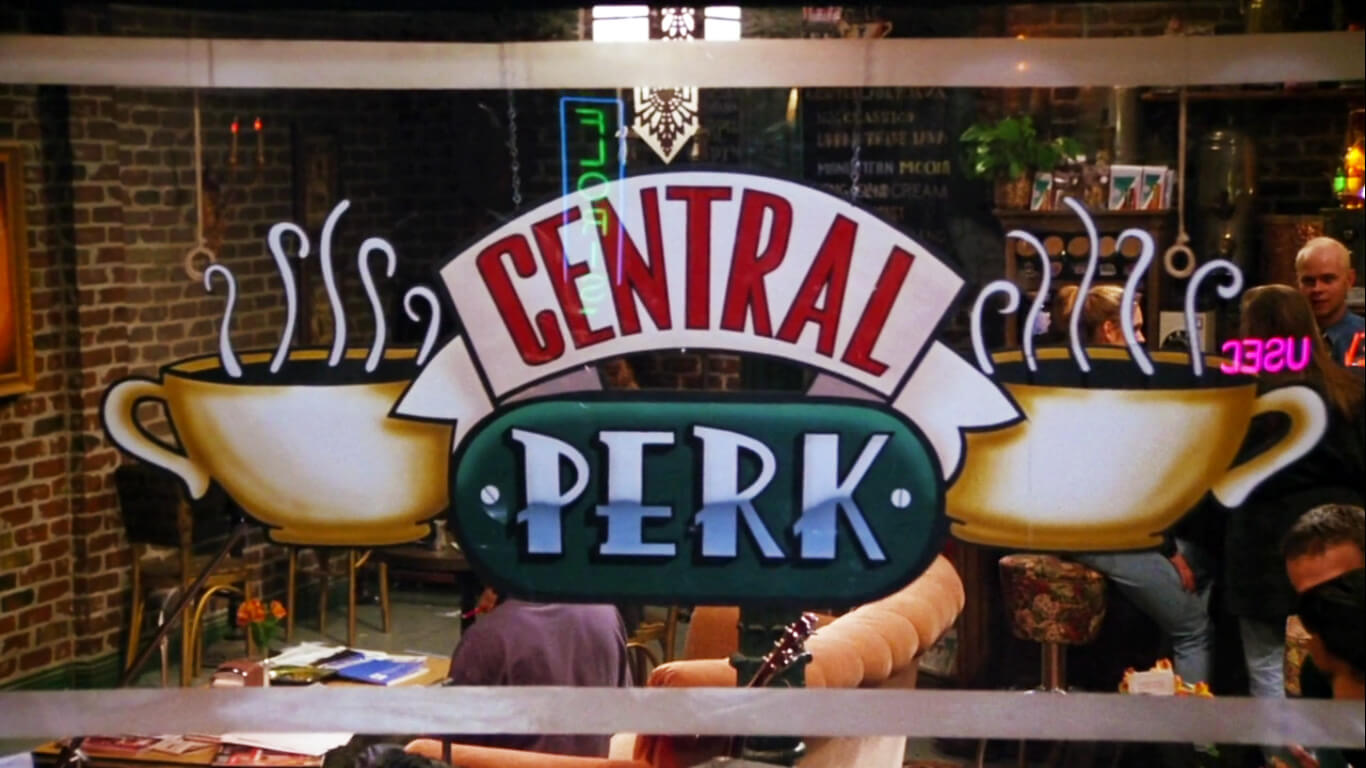
NEW FROM THE AMPLE GROUNDS STORE : LET’S GO BRANDON COFFEE MUG
